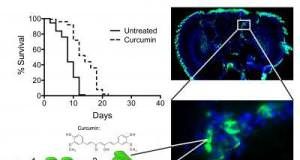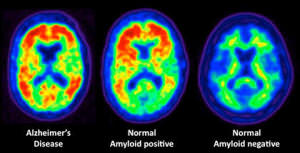Neurotoxins in Shark Fins: A Human Health Concern
Sharks are among the most threatened of marine species worldwide due to unsustainable overfishing. They are primarily killed for their fins to fuel the growing demand for shark fin soup, which is an Asia delicacy. A new study by University of Miami (UM) scientists in the journal Marine Drugs has discovered high concentrations of BMAA in shark fins, a neurotoxin linked to neurodegenerative diseases in humans including Alzheimer's and Lou Gehrig Disease (ALS).
Turmeric-Based Drug Effective On Alzheimer Flies
Curcumin, a substance extracted from turmeric, prolongs life and enhances activity of fruit flies with a nervous disorder similar to Alzheimers, according to new research. The study conducted at Linköping University, indicates that it is the initial stages of fibril formation and fragments of the amyloid fibrils that are most toxic to neurons.
Learning Science: Actively Recalling Information From Memory Beats Elaborate Study Methods
Put down those science text books and work at recalling information from memory. That's the shorthand take away message of new research from Purdue University that says practicing memory retrieval boosts science learning far better than elaborate study methods.
To Perform With Less Effort, Practice Beyond Perfection
Whether you are an athlete, a musician or a stroke patient learning to walk again, practice can make perfect, but more practice may make you more efficient, according to a surprising new University of Colorado Boulder study. The study, led by CU-Boulder Assistant Professor Alaa Ahmed, looked at how test subjects learned particular arm-reaching movements using a robotic arm.
Overeating May Double Risk Of Memory Loss
New research suggests that consuming between 2,100 and 6,000 calories per day may double the risk of memory loss, or mild cognitive impairment (MCI), among people age 70 and older.The study was just released and will be presented at the American Academy of Neurology's 64th Annual Meeting in New Orleans April 21 to April 28, 2012. MCI is the stage between normal memory loss that comes with aging and early Alzheimer's disease.
How To Tell Apart The Forgetful From Those At Risk Of...
It can be difficult to distinguish between people with normal age-associated memory loss and those with amnestic mild cognitive impairment (aMCI). However people with aMCI are at a greater risk of developing Alzheimer's disease (AD), and identification of these people would mean that they could begin treatment as early as possible.
Music Training Has Biological Impact On Aging Process
Age-related delays in neural timing are not inevitable and can be avoided or offset with musical training, according to a new study from Northwestern University. The study is the first to provide biological evidence that lifelong musical experience has an impact on the aging process.
Mild Cognitive Impairment Is Common, Affects Men Most, Study Finds
Researchers involved in the Mayo Clinic Study of Aging report that more than 6 percent of Americans age 70 to 89 develop mild cognitive impairment (MCI) every year. Also, the condition appears to affect men and those who only have a high school education more than women and those who have completed some higher education. People with MCI are at the stage between suffering the normal forgetfulness associated with aging and developing dementia, such as that caused by Alzheimer's disease.
Could Alzheimer’s Disease Be Diagnosed With A Simple Blood Test?
A pilot study suggests infrared analysis of white blood cells is a promising strategy for diagnosis of Alzheimer's disease. Spanish researchers, led by Pedro Carmona from the Instituto de Estructura de la Materia in Madrid, have uncovered a new promising way to diagnose Alzheimer's disease more accurately.
How The Brain Senses Nutrient Balance
There is no doubt that eating a balanced diet is essential for maintaining a healthy body weight as well as appropriate arousal and energy balance, but the details about how the nutrients we consume are detected and processed in the brain remain elusive. Now, a research study discovers...
Lifelong Brain-Stimulating Habits Linked To Lower Alzheimer’s Protein Levels
A new study led by researchers at the University of California, Berkeley, provides even more reason for people to read a book or do a puzzle, and to make such activities a lifetime habit.
Alzheimer’s Damage Occurs Early
The first changes in the brain of a person with Alzheimer's disease can be observed as much as ten years in advance -- ten years before the person in question has become so ill that he or she can be diagnosed with the disease. This is what a new study from Lund University in Sweden has found.

















